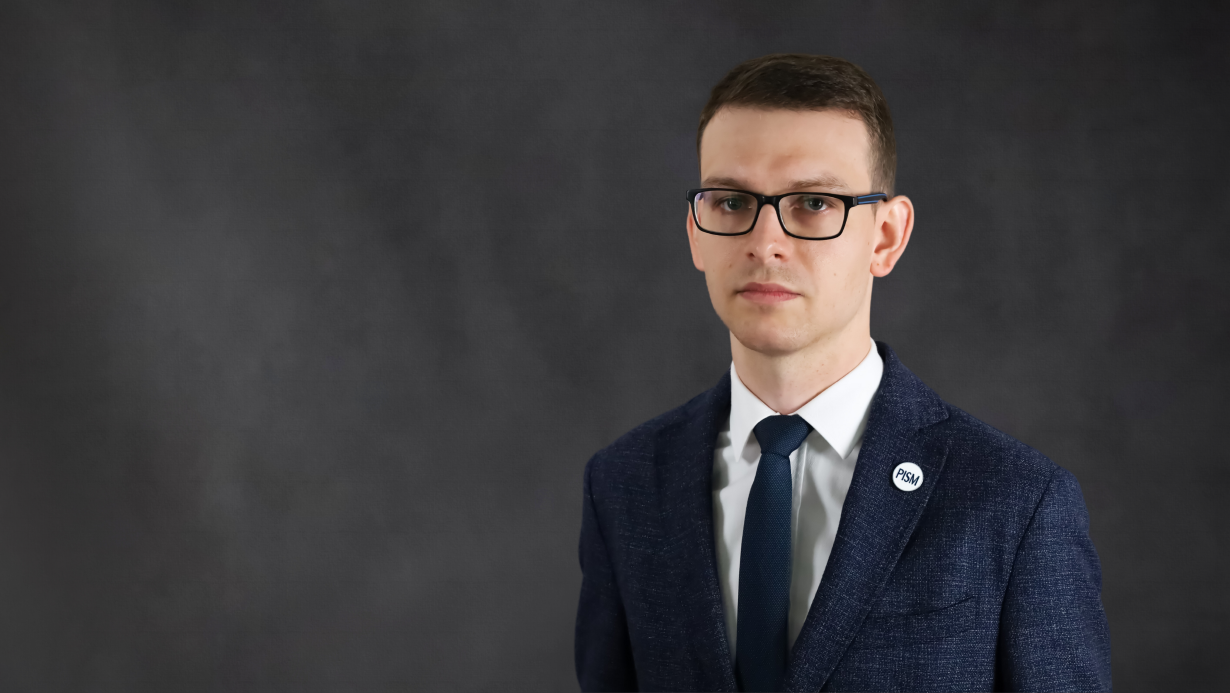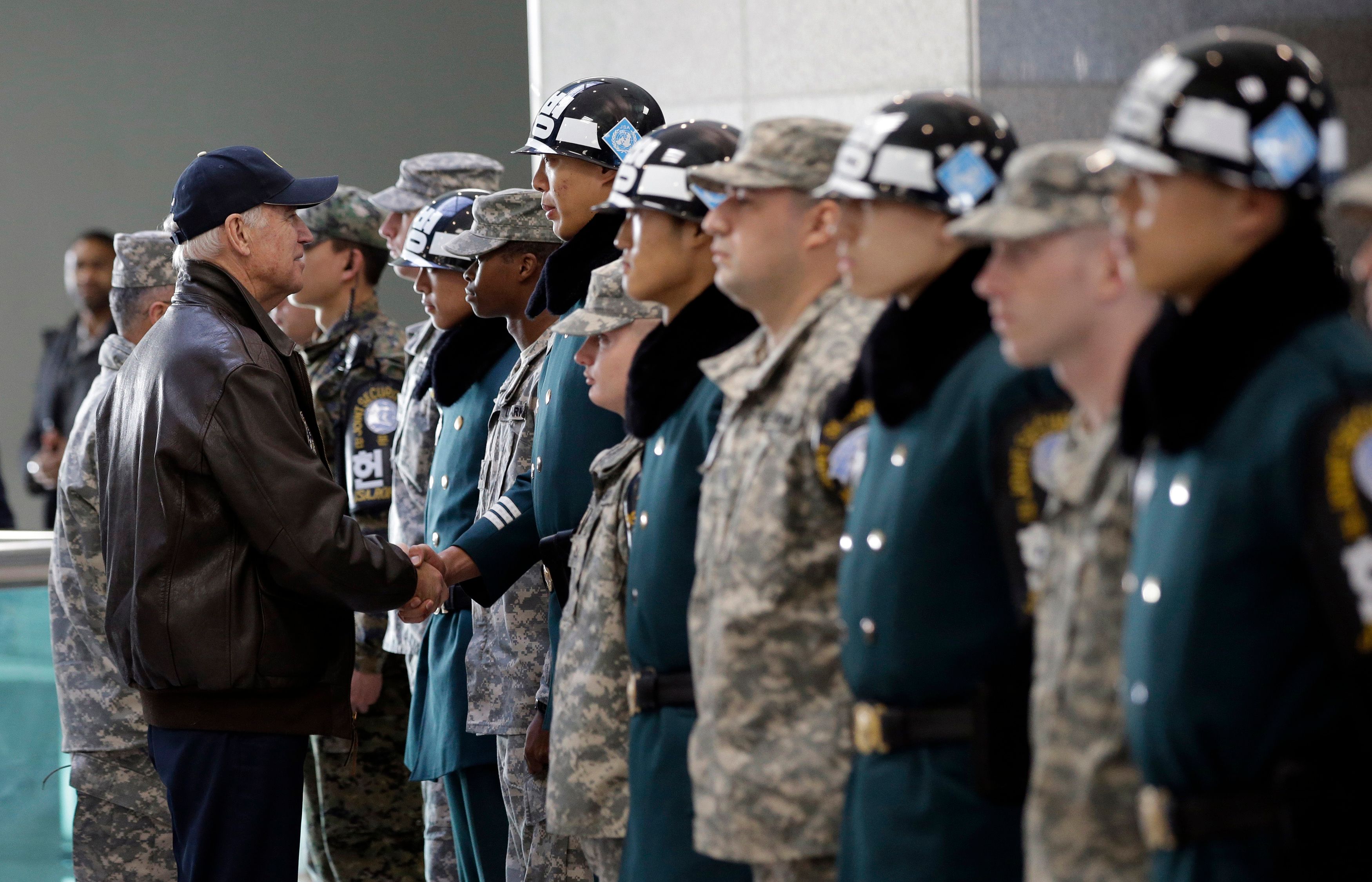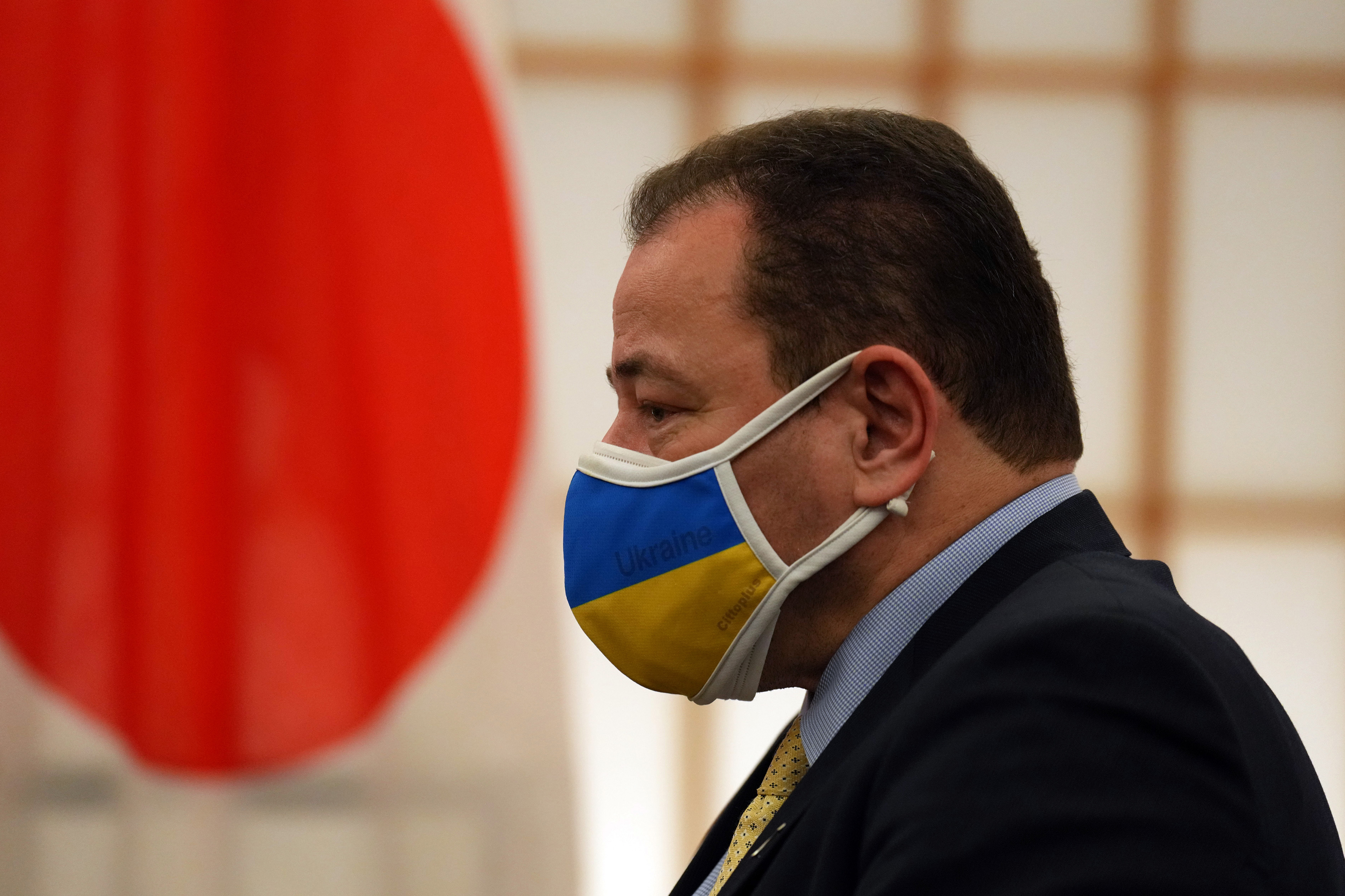Foreign Policy in the Presidential Campaign in South Korea
The presidential election in South Korea will be held on 9 March. The main candidates are representatives of the largest political parties: Lee Jae-myung of the ruling liberal Democratic Party and Yoon Suk-yeol of the opposition conservative People Power Party. A Lee victory would largely mean the continuation of the current government’s foreign policy—striving for dialogue with North Korea, maintaining a strong alliance with the U.S., and stable relations with China. If Yoon wins, it would increase the likelihood of stronger support of South Korea for the U.S. in its rivalry with China and increased tensions in relations with North Korea. Both candidates condemn Russia’s aggression against Ukraine, but draw different conclusions from the war.
 KIM HONG-JI/Reuters/Forum
KIM HONG-JI/Reuters/Forum
Circumstances of the Election
Although 14 candidates are running in the presidential election in South Korea, only two politicians representing the main parties have a real chance, although even, to win. Recent polls indicate a slight advantage for Yoon over Lee. Socio-economic issues prevail in the election campaign, such as rising real-estate prices, income inequality, and concerns about corruption. Foreign policy issues are discussed in a general way, often in the context of social attitudes towards other countries. For example, this is related to strong anti-Japanese sentiment and the growing hostility to China, which is considered a serious threat to the security and economy of South Korea.
Both candidates have no experience in foreign policy. Lee built his position as the governor of Gyeonggi, the largest province, and Yoon as the attorney general. Lee’s and Yoon’s postulates refer to the traditional positions of their political camps, for example, liberals support the inter-Korean dialogue and conservatives advocate a more confrontational policy towards North Korea. The candidates’ views largely are related to their assessment of the achievements of current president Moon Jae-in and his administration. During his presidency, South Korea initiated the dialogue with North Korea, which ultimately did not bring a breakthrough. He also sought to strengthen South Korea’s alliance with the U.S. while maintaining stable relations with China. During Moon’s tenure, relations with Japan deteriorated over historical and trade disputes. These issues have in turn become the main foreign themes in the campaign. With the war in Ukraine, issues related to the security policy of South Korea are raised more often in the debates.
Lee’s Programme
The liberal candidate supports continuing the inter-Korean dialogue and restoring economic and tourism cooperation between the Koreas. In order to break the deadlock in mutual relations, Lee intends to adopt a political declaration on the end of the Korean War and then seek to conclude agreements on confidence-building measures between the Korean states (such as the agreement signed in September 2018). While remaining open to meeting with Kim Jong Un, he believes that South Korea should seek a pragmatic coexistence with North Korea, not the unification of Korea. Regarding the U.S.-North Korea negotiations on denuclearisation, according to Lee, South Korea should play the role of an “intermediary” and support a step-by-step approach that includes first freezing, then gradual reducing, and finally dismantling the North Korean nuclear programme. Lee opts for a conditional relaxation of UN sanctions on North Korea with a “snapback mechanism” under which sanctions would be reimposed immediately if North Korea fails to fulfil its denuclearisation obligations. Unlike the current administration, Lee declares his administration would respond more decisively to North Korean violations of inter-Korean agreements. With regard to the war in Ukraine, he emphasises the possible negative effects of Russia’s invasion of that country on the economic security of South Korea, such as an increase in energy prices.
Under Lee, the alliance with the U.S. is to remain the basis of South Korea’s foreign policy. However, he has stated it should not be developed at the cost of deteriorating relations with China and that South Korea should remain “pragmatic” in the face of rivalry between the great powers. Therefore, Lee opposes deploying another THAAD anti-missile defence battery in the country because, like in 2016-2017, it risks economic retaliation from China. He emphasises that cooperation with China is necessary to solve the security problems on the Korean Peninsula. In Lee’s view, the tensions between the U.S. and China should induce South Korea to strengthen its own military potential, including building nuclear-powered submarines in cooperation with the U.S.
Lee blames Japan for causing the crisis in bilateral relations, while expressing anti-Japanese sentiment. Stressing the need to improve relations, he proposes a two-pronged approach in which historical issues and economic and political cooperation are separate.
Yoon’s Proposals
The conservative candidate advocates prioritising security issues, including denuclearisation, in relations with North Korea. He also addresses human rights violations in the North to a greater extent than Lee. In response to the North Korean threat, he vows to develop South Korea’s defence potential, including pre-emptive strike capabilities. Yoon opposes unilateral concessions to North Korea, such as a declaration on the end of the Korean War. He announced he would cancel the 2018 agreement on confidence-building measures, which is not respected by the North. While criticising the dialogue promoted by the Moon administration, he allows the possibility of talks with North Korea, including a meeting with its leader, but only if Kim takes steps towards denuclearisation. In Yoon’s view, the U.S. and both Koreas should participate in the nuclear talks, and regular communication between the parties would be ensured by a trilateral liaison office in Panmunjom or Washington. A precondition for the start of talks would be “verifiable steps” by North Korea to at least freeze its nuclear programme. Only then, he argues, should the U.S. and South Korea ease sanctions.
Yoon supports strengthening the alliance with the U.S. in every dimension. He favours deepening military cooperation, signalling the possibility of deploying more THAAD batteries in South Korea and declaring an increase in the frequency and scale of mutual exercises. Yoon supports South Korea’s participation in coalitions of democratic states, suggesting deepening cooperation with the QUAD (Australia, Japan, India, and the U.S.) or even joining this format and the need to participate in the Five Eyes (Australia, Canada, New Zealand, UK, U.S.) intelligence-sharing cooperation. In his opinion, continuing the South Korean policy of balancing between the U.S. and China will not be possible, but at the same time he hopes to maintain stable economic relations with China. Yoon also promises an improvement in relations with Japan, blaming Moon for their deterioration. He suggests that more frequent dialogue with the Japanese authorities would lead to a comprehensive solution to historical and trade problems. Pointing to common values and interests, he supports deepening the trilateral security cooperation between South Korea, the U.S., and Japan. From Yoon’s perspective, the war in Ukraine justifies his demands to expand defence capabilities and tighten the alliance with the U.S.
Conclusions
Despite their differences, mainly in the candidates’ assessments of Moon Jae-in’s presidency and their approaches to North Korea, both Lee and Yoon treat the alliance with the U.S. as a pillar of foreign policy and support the development of South Korea’s defence potential.
However, the next president will have limited room for manoeuvre in foreign policy due to problems arising from the development of North Korea’s nuclear and missile potential and the competition between the U.S. and China. The continuation of the inter-Korean dialogue announced by Lee does not have to bring the desired results and may lead to tensions in relations with the U.S. (for example, around the proposal to ease sanctions on North Korea). In turn, prioritising denuclearisation and Yoon’s more confrontational stance on North Korea may increase the likelihood of tensions on the Korean Peninsula.
Despite a difference in emphasis, Lee’s and Yoon’s views on the U.S.-China rivalry are practically similar. Lee’s declaratory pragmatism in relations with the U.S. and China will be eventually manifested in strengthening cooperation with its ally, the U.S., and the further development of South Korean military potential. On the other hand, Yoon’s call for a comprehensive deepening of the alliance with the U.S. and more open support for its ally in the competition with China will not necessarily mean embarking on a collision course with China, in part because of the lobby of South Korean businesses interested in the Chinese market. The biggest difference may be in relations with Japan, with which Yoon is the more conciliatory candidate than Lee and may do more to improve relations.
Regardless of the election result, South Korea will remain an important partner of the EU, especially on economic matters. The reaction of the government in Seoul to the Russian invasion of Ukraine, including joining the economic sanctions on Russia, allows treating South Korea as a like-minded partner that opposes violations of international law.





